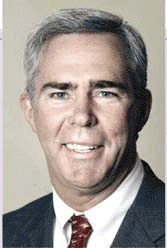It wouldn’t surprise me if a high percentage of people in Southern California reported perennial symptoms, but it does surprise me about people in other areas of the country. Although many people believed that allergic rhinitis is a seasonal problem, that is not what patients are reporting, Dr. Derebery said. She pointed out that although this survey was not a randomized controlled trial, the findings carry weight because of the large number of patients who responded.
Explore This Issue
February 2007A second important finding was that AR takes a big toll on productivity and quality of life. The survey showed that on asymptomatic days, patients self-estimated their work productivity at 95%, whereas they said their productivity was 72% on days when allergy symptoms flared.
These findings imply that allergic rhinitis is a year-round disorder, and this is not well recognized by the medical profession and the lay public. We need to raise awareness about the persistence of symptoms and not rely on television commercials for our information. Also, although allergic rhinitis is not life-threatening, it does have a major impact on quality of life and productivity. Doctors should not discount AR, because these patients report a lot of misery, Dr. Derebery said.
Patients’ Perspectives
The major symptoms that patients found bothersome (in descending order) were nasal congestion, headache, and postnasal drip. In addition, fatigue was common, along with depression and irritability. About 40% of patients said they were unable to tolerate the discomfort of their allergies.
In general, patients reported that AR had a big impact on QOL, said Robert Naclerio, MD, who is Professor and Chief of Otolaryngology and Head and Neck Surgery at the University of Chicago. Twenty-six percent reported that symptoms had some impact on quality of life, 25% said a moderate impact, and 15% said a lot of impact, for a total of 66% of patients reporting an impact on QOL.
Patients used a variety of medications to control AR. Slightly more than half of respondents said they used over-the-counter medications; 36% used nasal sprays; 45% used whatever medications were on hand; and 31% used no medications.
Nasal Spray Users
Responses of nasal spray users (n = 919) suggest that there is an unmet need for a better nasal spray, Dr. Naclerio said. When asked whether their currently prescribed nasal spray provided relief, 46% said for most symptoms, 16% said for all symptoms, and 37% said not very much relief.

Leave a Reply